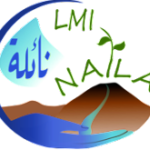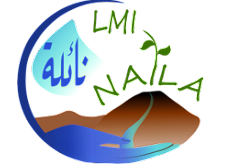The Joint International Laboratory (LMI) NAÏLA
IIt’s the first LMI devoted to the management of water resources in rural areas in Tunisia. NAÏLA’s activities are structured around several major development and scientific issues that require bringing together a multiple complementary skill.
Tunisia represents an emblematic case illustrating the major challenges of water resource management in the Mediterranean. Water resources mobilization policies, implemented by the Tunisian State since its independence, have supported the development of different uses and sectors of the economy. This process of mobilization and development has led to the degradation of resources at the quantitative and qualitative level.
Tunisia is today faced with increased competition and tension between uses (agricultural, industrial, domestic), between territories (towns/countryside, upstream/downstream) and between the players involved in water management (users, managers, public, private). A better understanding of such situations of tension implies questioning the current management methods and their history, knowing that it is advisable to better take into account the specificities of the different territories. The management methods to be considered must take into account the evolution of the constraints and opportunities induced by global change, while considering the social, agro-economic and environmental implications.

IIn order to rethink the methods of water resource management in Tunisian rural areas, the LMI NAÏLA proposes to respond to the following main issues:
The knowledge produced will provide solid elements for considering strategies for adapting to global change. These strategies are treated prospectively by the members of the LMI within the framework of ongoing projects, and they will be deepened in the second five-year period.
2018
2020
2017
2019
2021

